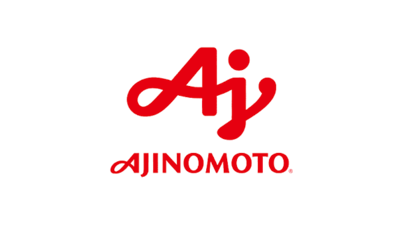As in any industry, growth is good news for food and beverage companies — especially as they evolve past the start-up phase to become more established. Yet, it also introduces new challenges. From scaling manufacturing to fit evolving demands to addressing new regulatory requirements, sushi product manufacturer RiceWraps found themselves bracing for significant changes as they transitioned into a much larger facility.
As a startup company on the cusp of major change, RiceWraps recognized a need for simplified plant management. Rice is a notoriously tricky product to work with, so they’d need to introduce an innovative approach to manufacturing and increase their quality assurance efforts while still keeping operating costs under control. It would be no easy feat, but they were confident that new technology could help them address these challenges.
The following account details how RiceWraps implemented SafetyChain to scale operations and overcome regulatory challenges and is shared by Erica Wade, Vice President of Quality Operations for RiceWraps. Through the coming pages, we’ll explore her insights, including:
- The challenges RiceWraps wanted to solve with technology
- Internal factors which had to be considered before implementation
- The primary drivers behind the project’s success
- Benefits RiceWraps has experienced since rolling out SafetyChain’s solutions
- Recommendations for anyone considering a technology project
First, let’s first learn a little more about RiceWraps with a brief background.
About RiceWraps
RiceWraps is a manufacturer of sushi rice products headquartered near Durham, NC. The company makes and sells frozen sushi rice goods, including sheets, pillows, and cups. Their products are sold to retail stores and food management companies. The company is characterized by a startup mindset and innovative food manufacturing processes. Yet, cooking rice properly in bulk is no easy feat. To promote efficiency, their team sought a solution that would assist their personnel in providing plant-wide transparency and connectivity. While they only have one facility, they were in the middle of a transition to a much larger plant at the time of the implementation. They sought a complete overhaul of data-gathering methods, as the facility was predominantly paper-driven previously. To meet their unique needs, RiceWraps turned to the following SafetyChain solutions:
- Food safety
- Quality assurance
- Audit readiness
Let’s explore the specific challenges they hoped the solutions would address.
What Problems Did RiceWraps Want to Solve with Technology?
Prior to implementing SafetyChain, RiceWraps was located in a 2,000 square foot facility in Raleigh with one manufacturing line. During the time of implementation, they were moving to a 100,000 square foot facility in Butner, which had the potential for six to eight manufacturing lines.
As they prepared for this upgrade, their leaders sought to take their data and processes from paper documentation to electronic forms. All documents related to production, sanitation, critical control checks, and audits were done on paper and housed in three-ring binders. They felt that while this method might be acceptable for a small company, it would no longer suit their needs as they began to scale.
Erica knew that quick document retrievals and weekly reviews would be cumbersome in the larger facility if they continued to use a paper-based system. Moreover, with the move and change in facility size, the company would pursue different types of sales, which would introduce significant regulatory changes.
Simply put, paper just wasn’t going to cut it anymore. RiceWraps had to look for a platform that would provide better visibility and control, but first, they had to assess their own internal challenges.
What Internal Considerations & Challenges Did RiceWrap Foods Have to Address?
As with any food company, RiceWraps had some unique circumstances which needed to be factored into their decision for a technology solution. Specifically, there were two significant considerations that they had to address:
Headcount & Scale
As a startup company, RiceWraps had a small headcount and had to be conservative with their budget. The amount of documentation that was going to need to be reviewed would increase, but they didn’t have the budget to hire two new people in quality. The ability to manage and analyze operations in real-time was, therefore, essential in the solution they would need.
Larger Facility with 24-Hour Processing
With their growth, the company also had the goal of moving to longer production times. Eventually, they wanted to maintain 24/6 operations. They needed a solution they could rely on to keep operations running as smoothly as possible around the clock.
To find the perfect fit for their needs, Erica compared four different providers and compiled all of the data in a spreadsheet. She presented her findings to the executive team, and after assessing what RiceWraps wanted and needed along with what would be the easiest implementation, they settled on SafetyChain.
One of SafetyChain’s standout features, which helped shape their decision, is its options for scheduling tasks. The software allows for seamless communication and task scheduling across all departments, which they knew would prove useful. In their new facility, they’d be adding a lab, which would add another layer of complexity to their operations. The ability to communicate with and schedule tasks across every area of the facility was integral to a successful implementation. There were several other drivers of success in their implementation, however.
What Were the Biggest Drivers of Success in the Implementation?
As with most new projects, getting executive buy-in was crucial to getting the deployment of a new technology off the ground for RiceWraps. Fortunately, the CEO was able to see the possible ROI of the project quickly.
In particular, implementing software would allow RiceWraps to hold off on hiring new personnel — a major advantage for the company. With that in mind, the rest of the project came down to planning and execution.
The RiceWraps team wanted software that was easy to use. It was important to them for every user, no matter their role, to be comfortable with the system. They were happy to find that SafetyChain offered a short implementation; the process of building forms took just a few weeks. Moreover, it was easy to learn the back-end of the system.
While the SafetyChain team offered support through the implementation and created some basic forms, RiceWraps then took ownership to make it their own. According to Erica, the partnership was a great success: while the SafetyChain team knows every nuance of their software, RiceWraps is the expert on their unique processes. Erica and her team were pleased with the valuable features the software offers but also the flexibility it provides in meeting a very diverse array of needs for food manufacturing facilities.
It’s, therefore, no surprise that RiceWraps has witnessed many benefits as a result of implementing SafetyChain’s Plant Management Platform.
What Benefits Has SafetyChain Created for RiceWrap?
While many of the advantages of SafetyChain will continue to manifest in the future, RiceWraps began noticing some benefits shortly after the deployment. Here are just a few they’ve already witnessed:
Immediate ROI
With the ability to keep their headcount down, the ROI of the software surfaced immediately. Thanks to SafetyChain, RiceWraps still hasn’t had to hire extra personnel in quality.
Executive Visibility
Performance data is accessible in real-time, from anywhere. The ability to actively track KPIs instantly – instead of keeping performance data locked away on a shelf or in a filing cabinet – has been instrumental in driving efficient management practices.
Everything in One Convenient Platform
With all of the production data they need at their fingertips, RiceWraps has been able to say goodbye to their cumbersome three-ring binders. Tablets are available in each area, and employees can filter forms based on the specific processes of the area. Managers, too, can access the information they need from their workstations.
Reduced Training Time
With simplified, electronic data capture, and a user-friendly system, training time has been shortened to one week for new employees. Employees are also happier as a result and feel that the system is easy and intuitive to pick up. They can use the system to fill out forms as work, knowing at the end of the day that they’ve completed what they needed to do.
On-Demand Audits
On-demand audits can be executed with confidence, since the system helps to ensure thorough and accurate data which is accessible at any time from anywhere.
Drastic Reduction in Document Errors
RiceWraps has seen a 90% improvement in their rate of errors – they now estimate seeing maybe one per week at most. While their employees are still trained on proper documentation processes, having a tablet that guides them through what must be completed with time-stamped entries has drastically reduced errors and eliminated missing data.
Employee Productivity Gains
When data errors would occur, the RiceWraps team would have to make a lot of corrections. Now that SafetyChain guides employees through process steps seamlessly, there are fewer errors, and thus, considerable gains in productivity. When errors do occur, they can be resolved quicker. Erica estimates they’re now saving 30 hours per week on the production side, which is equivalent to having another employee.
In addition to these successes, there were some other key improvements RiceWraps has experienced since implementing SafetyChain.
What Successes Did RiceWrap Foods Have with the Implementation of SafetyChain?
Erica notes that employees have seemed much happier since the technology has been introduced in their plant. They’re thrilled to spend less time writing, and since they know they’re completing their tasks correctly, their confidence has increased tremendously. Additionally, they can receive instant feedback.
RiceWraps has also been happy with SafetyChain’s audit-on-demand feature. With the simple press of a button, users can look at any equipment or process in question. It retrieves all relevant data quickly, which is far more efficient than digging through binders.
Another one of their favorite features, the task scheduler, is particularly handy for their maintenance team. They don’t have to try to remember maintenance schedules for machines; instead, they can schedule timely service to ensure everything is kept running well.
Here are a few more successes RiceWraps has experienced with SafetyChain:
Productivity
- No missing data
- Quicker, easier access to data
- Audit readiness and preparation
- Fast and easy report creation
- Increased accountability
- No guessing about performance metrics
Compliance
- Proactive maintenance checks
- Early detection of issues
- Immediate visibility into HACCP checks
Employees
- Simpler operations
- Easier training procedures
After having seen so many benefits of a plant management platform firsthand, RiceWraps has some final words of advice for any other company considering an implementation.
What Advice Would RiceWrap Give Other Facilities Implementing a Solution?
First and foremost, Erica recommends that companies in the early phase of their technology journey do their homework to explore different features to determine what will work best for their needs. While she recommends reaching out to other companies and talking to others to see what has worked for them, she also notes that it’s critically important to assess the specific needs of your own facilities.
To that end, she recommends that you talk to your employees and get out on the manufacturing floor. You might just be surprised to discover that electronic forms would be very well-received among your operators.
Finally, be sure to check in with key decision-makers at every step throughout the process.
Summary
As RiceWraps prepared to scale their business, they knew it was the perfect opportunity to introduce new technology. In doing so, they’d be able to manage their increased production activities smoothly and efficiently — without having to hire additional qualified personnel.
Whether your company is looking to scale in the near future or you’re simply seeking a solution that will drive operational effectiveness, here are a few points to keep in mind:
- While moving to a new facility is a massive undertaking, RiceWraps knew that attempting to scale with tedious, paper-based recordkeeping would only complicate their transition. It may be challenging to decide on “the perfect time” for implementation, but remember that the end results will actually simplify your processes in the long-run.
- RiceWraps knew that they wanted a system to help address evolving regulatory challenges and their increased production activities. They also identified the constraints of the project: Being a startup company, they had budgetary limitations and wanted to avoid hiring extra personnel. While technology will always require an investment, identifying the ways it can help you save may help you reach the right decision for your plant.
- Getting executive buy-in was a key factor for a successful implementation. Putting potential savings into hard-dollar amounts can help you perform an accurate cost/benefit analysis.
- SafetyChain has delivered a number of noteworthy benefits for RiceWraps. Without the need for additional qualified personnel, they saw an immediate ROI. They also now have executive visibility, all production data in one convenient platform, reduced training time, on-demand audits, a significant reduction in document errors, and employee productivity gains. While the benefits may look a little different from one company to the next, transitioning from a paper based system can pay off in many important ways.
- The success of the implementation continues to be realized by RiceWraps in the areas of productivity, compliance, and employee management. Among their favorite SafetyChain features are audit-on-demand and the task scheduler. Marrying the needs of your facility with a solution’s features is the best way to ensure the right fight.
Clearly, even for startups and small companies, paperwork is no longer practical. If your company is still using paper-based processes, there’s a huge area of opportunity awaiting. By considering the evolving needs your company faces and the ways paper-based systems no longer satisfy them, you can begin to see the potential payoffs of introducing a platform to increase visibility and knowledge throughout your facility.


